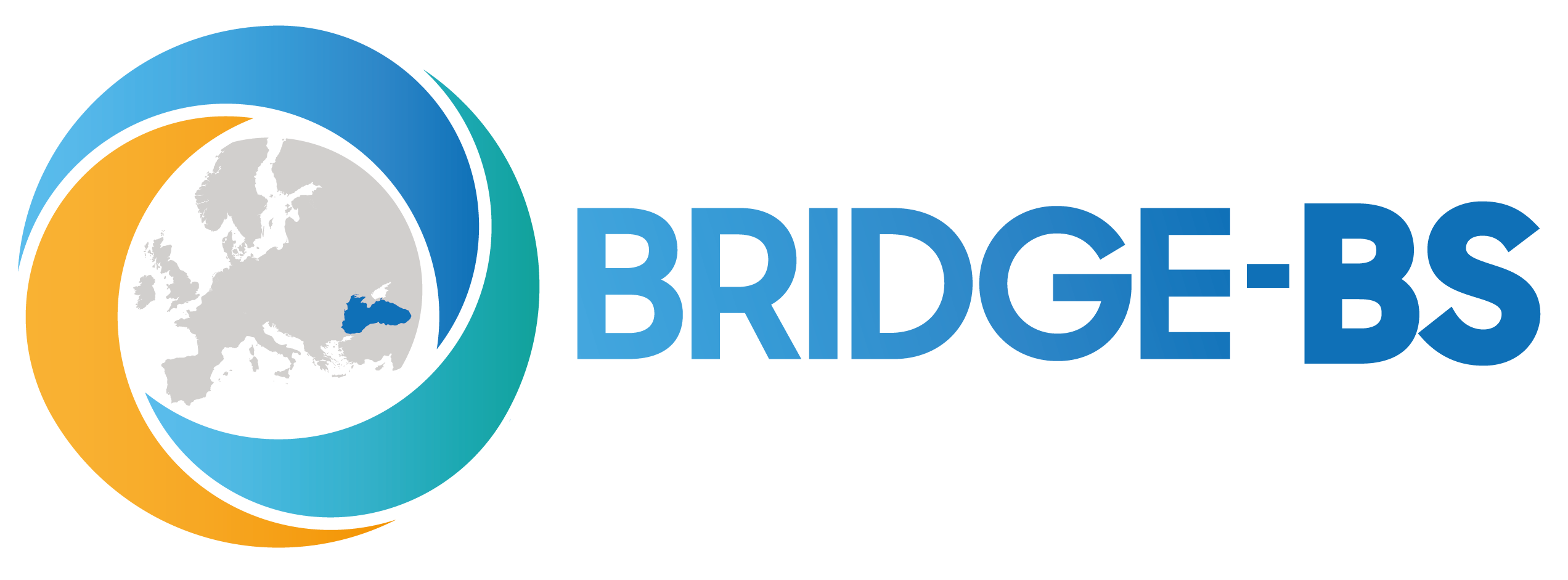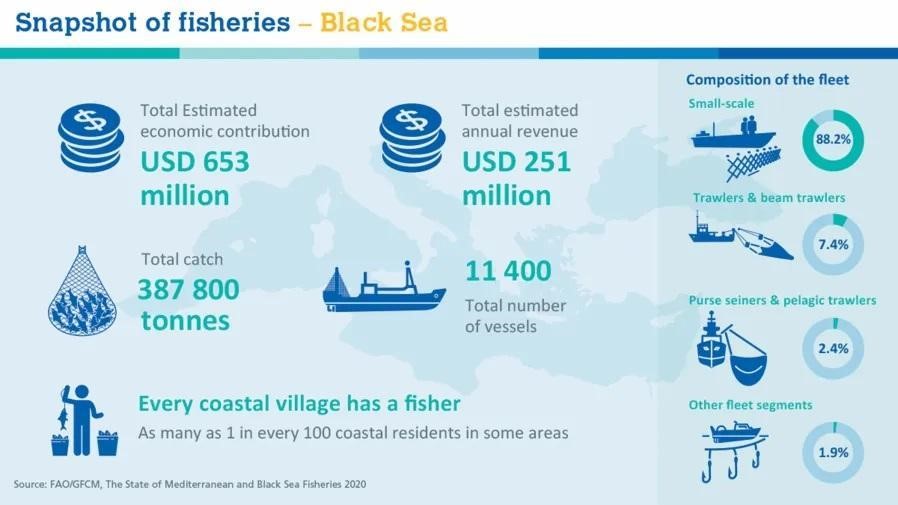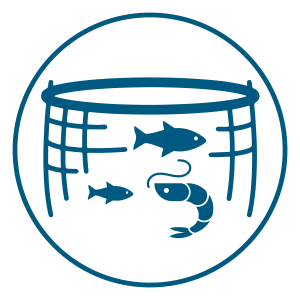
MARINE LIVING RESOURCES AND AQUACULTURE
The marine living resources are all organisms in the seas and oceans, ranging from microscopic bacteria to giant fish and mammals, and representing the biological component of our oceans. The marine living resources include all of the organisms that are utilized by humans, such as for harvesting or recreational uses. Most of the organisms are harvested for human consumption, but they also provide many other products and materials.
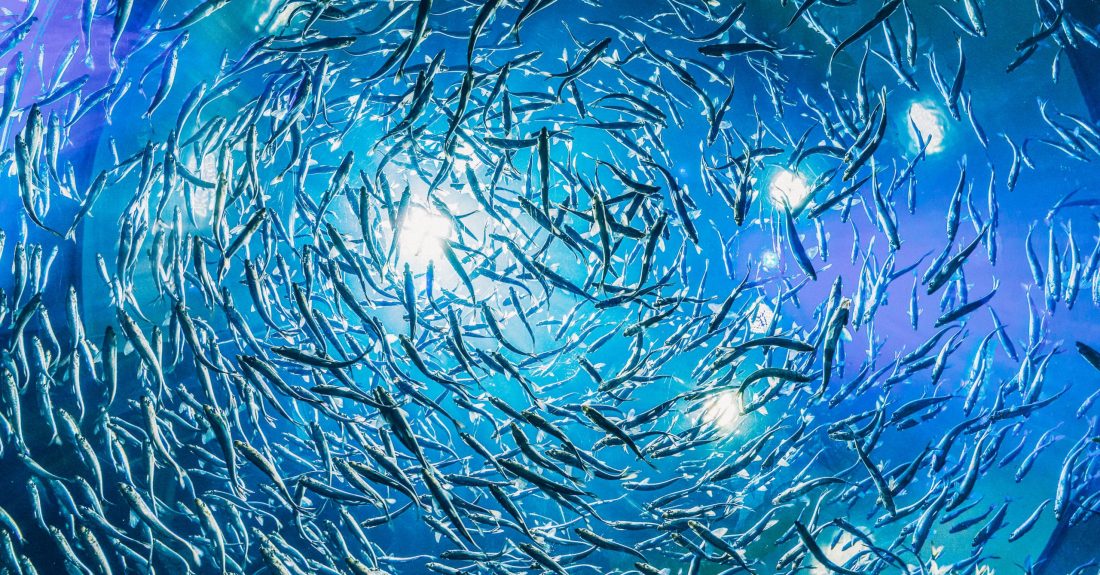
GENERAL INFORMATION
The Marine living resources sector encompasses the harvesting of renewable biological resources (primary sector), their conversion into food, feed, bio-based products, and bioenergy (processing), and their distribution along the supply chain. The EU is the sixth largest producer of fishery and aquaculture products (behind China, Indonesia, India, Vietnam, and Peru), covering around 3% of global production. However, overall production has been rather stable in the last decades.
ECONOMIC VALUE
According to the latest report on the EU fishing fleet, the EU-27 fleet continued to be profitable in 2018, with an overall gross profit of €1.5 billion and a net profit of almost €800 million. This represents significant progress, considering that the EU fleet was barely breaking even in 2008. Furthermore, the socio-economic data suggest that the economic performance and salaries of EU fishers tend to improve where fleets depend on stocks that are targeted sustainably and tend to stagnate where fleets depend on stocks that remain overfished or overexploited.
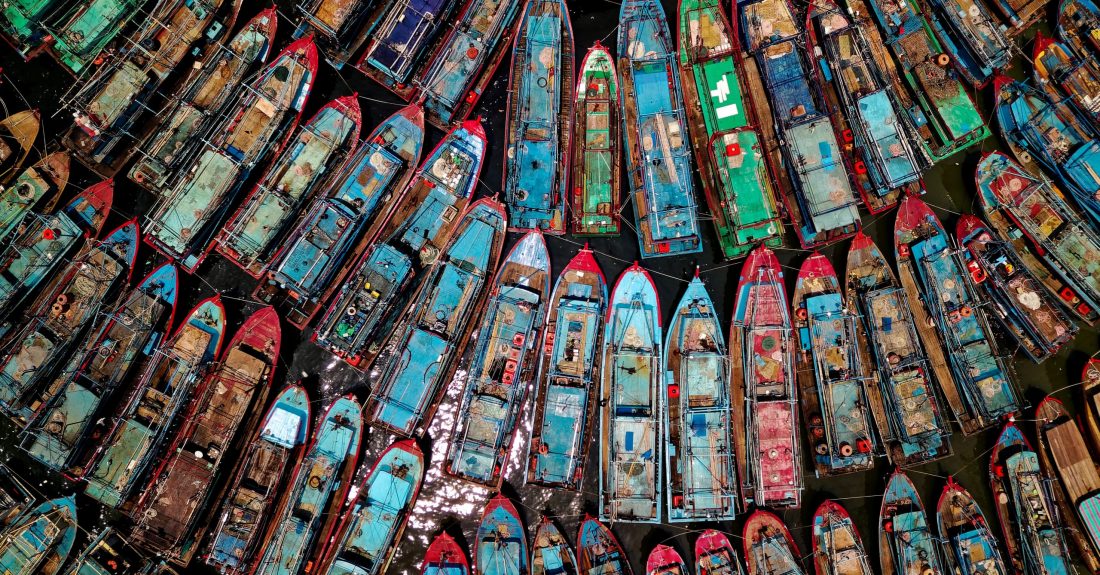
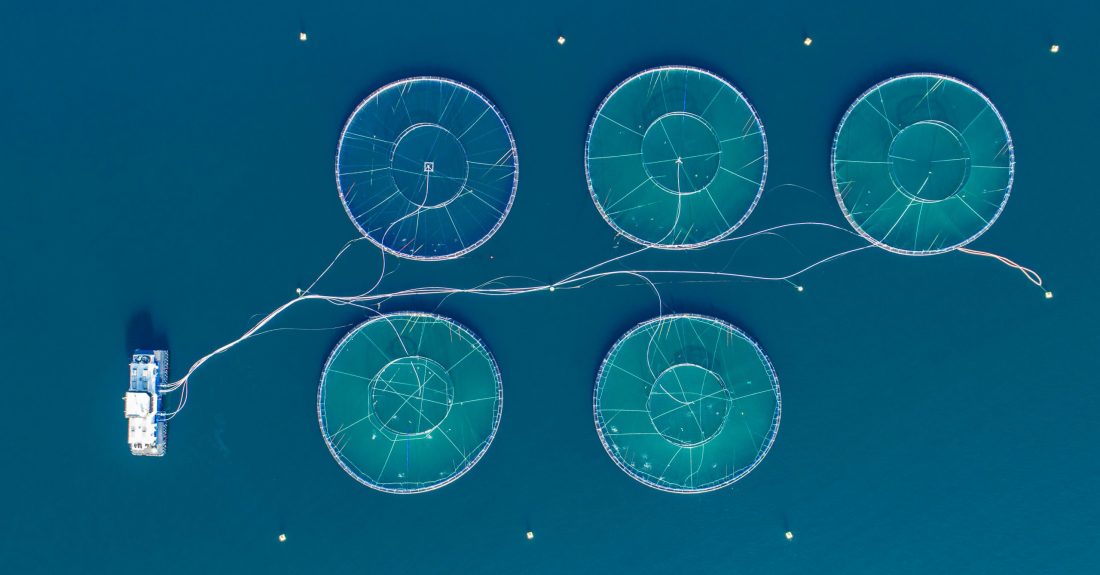
PRODUCTION
EU aquaculture production has stagnated over the last decades even if its value has increased. The production of mussels has decreased in recent years due to environmental factors (harmful algae blooms, lack of seed, diseases). The production of other important species (such as sea bream and seabass), where the producers have a higher degree of control on the production factors, has increased. Considering the increasing demand for seafood products and the opportunity to establish new farms partly due to Maritime Spatial Planning, it seems realistic to expect a growth of the EU aquaculture products, in particular of those with a high degree of control.
EXPLORE THE OPPORTUNITIES
Occupation | Description |
Hydrologist | Hydrologists play an important role in keeping our oceans and other bodies of water safe for wildlife and humans. They not only study the movement of water, but also water quality. They spend a considerable amount of time in the field, taking samples to test for and measure the level of pollutants. Though they spend quite a bit of time out in the field, hydrologists also work in labs testing samples taken, analyzing data, and creating reports |
Marine biologist /Ichthyologist | Marine biologists study salt water organisms and how they interact with their ecosystem and considering an estimated 50% to 80% of all life on earth is found under the sea, marine biologists have their work cut out for them. They conduct studies either in controlled settings or natural habitats to analyze the characteristics, reproduction, and movement patterns of marine life. Degrees in zoology, wildlife biology, or ecology are typical for marine biologists. Master’s degrees are often required for higher-level investigative work, and PhDs are necessary for independent research or university positions. |
Marine ecologist and dive operations manager | A marine ecologist performs research on aquatic systems, focusing on how water organisms interact with their environment. They can work in laboratories or out in the field, gathering data and experimenting. One main goal is to preserve life in water bodies. A marine ecologist studies the interaction between sea creatures and their habitat. He or she can also focus on the human population's effect on marine environments. |
Aquatic toxicologist | Toxicologists study the types of contaminants that are hazardous to marine organisms, vegetation, wildlife, and humans in aquatic environments. While they spend very little of their time in the field, their work in the lab is valuable. Toxicologists spend much of their day testing samples, analyzing or collecting data, and creating reports. |
Fishery data manager | The role of the Fishery Data Manager is to manage the collection, storage, and dissemination of accurate and comprehensive scientific data for regional and national fisheries management authorities. |
Environmental engineer | https://www.prospects.ac.uk/job-profiles/marine-biologist |
Aquarist | Aquarists work in aquariums and may have a variety of responsibilities depending on their position and experience. They work with a variety of marine life from fish to large mammals. They may be responsible for maintaining the tanks and equipment, feeding the wildlife, leading visitor presentations, and working with the wildlife. While many responsibilities of an aquarist may be handled outside of the water, some activities should be performed in the water. |
Fisheries Manager | Fisheries managers oversee the day-to-day activities at fisheries, where fish are raised for commercial purposes. Their duties could include a variety of responsibilities including maintaining equipment, monitoring growth, training team members, and record keeping. They must work well in groups as they often are required to collaborate with other team members as well as managers from other facilities. |
Aquaculturist | Aquaculture is one of many types of marine conservation careers. Aquaculturists work to ensure that the fish and shellfish populations remain in healthy numbers by raising and harvesting these marine animals. The fish are raised for commercial purposes to be sold as food and also for restocking bodies of water for recreational fishing. Aquaculturists must understand the development of fish and shellfish to ensure that the fish are healthy and safe to eat. |
| No | Education/Specialty | Program | University | Country | City | Web page |
| 1 | Biology* | MSc | Sofia University “Kliment Ohridski” | Bulgaria | Sofia | https://www.uni-sofia.bg/index.php/bul/universitet_t/fakulteti/biologicheski_fakultet2/specialnosti/magist_rski_programi/biologicheski_fakultet/biologiya/ |
| 2 | Zoology | MSc | Sofia University “Kliment Ohridski” | Bulgaria | Sofia | https://www.uni-sofia.bg/index.php/eng/the_university/faculties/faculty_of_biology2/degree_programmes/master_s_degree_programmes/faculty_of_biology/biology/zoology |
| 3 | Algology and mycology* | MSc | Sofia University “Kliment Ohridski” | Bulgaria | Sofia | https://www.uni-sofia.bg/index.php/bul/universitet_t/fakulteti/biologicheski_fakultet2/specialnosti/magist_rski_programi/biologicheski_fakultet/biologiya/algologiya_i_mikologiya |
| Applied Hydrobiology and aquaculture* | MSc | Sofia University “Kliment Ohridski” | Bulgaria | Sofia | https://www.uni-sofia.bg/index.php/bul/universitet_t/fakulteti/biologicheski_fakultet2/specialnosti/magist_rski_programi/biologicheski_fakultet/biologiya/prilozhna_hidrobiologiya_i_akvakulturi | |
| Biodiversity, ecology, and conservation | MSc | Plovdiv University “Paisii Hilendarski” | Bulgaria | Plovdiv | https://bio.uni-plovdiv.bg/bg/%d0%bc%d0%b0%d0%b3%d0%b8%d1%81%d1%82%d1%8a%d1%80%d1%81%d0%ba%d0%b8-%d0%bf%d1%80%d0%be%d0%b3%d1%80%d0%b0%d0%bc%d0%b8/ | |
| The technology of meat, fish, and egg products* | MSc | University of food technologies | Bulgaria | Plovdiv | https://uft-plovdiv.bg/site_files/file/ksk2012_anot/magistri/2_MESO(2).pdf | |
| Aquaculture* | MSc | Thracian University | Bulgaria | Stara Zagora | http://uni-sz.bg/truni2/wp-content/uploads/af/file/Magistar/MagJivN6(3).pdf | |
| Fish farming, fisheries, and industrial fishing* | PhD | Thracian University | Bulgaria | Stara Zagora | http://uni-sz.bg/truni2/%D1%80%D0%B8%D0%B1%D0%BE%D0%B2%D1%8A%D0%B4%D1%81%D1%82%D0%B2%D0%BE/ | |
| Biology (Master of Biology in Genetics / Biodiversity / Hydrobiology) | MSc | Shota Rustaveli state university | Georgia | Batumi | https://www.bsu.edu.ge/text_files/en_file_172_2.pdf | |
| Ecology | MSc | Shota Rustaveli state university | Georgia | Batumi | https://www.bsu.edu.ge/text_files/en_file_1977_1.pdf | |
| Aquatic bioresources science and engineering* | MSc | Dunarea de Jos University | Romania | Galati | https://www.en.ugal.ro/education/study-programmes/master/romanian_master | |
| MSc in Aquatic Environment Engineering and Science | MSc | Technical University of Civil Engineering Bucharest | Romania | Bucharest | https://www.masterstudies.com/MSc-in-Aquatic-Environment-Engineering-and-Science/Romania/Technical-University-of-Civil-Engineering-Bucharest/ | |
| Molecular biology & Genetics | MSc, PhD | Yildiz Technical University | Turkey | Istanbul | https://bio.yildiz.edu.tr/en/bio/4/Graduate/53 | |
| Food Engineering | MSc, PhD | Yildiz Technical University | Turkey | Istanbul | http://www.bologna.yildiz.edu.tr/index.php?r=program/view&id=384&aid=109 | |
| Environmental Engineering | MSc | Yildiz Technical University | Turkey | Istanbul | http://bologna.yildiz.edu.tr/index.php?r=program/view&id=244&aid=29 | |
| Chemical and Biological Engineering | MSc, PhD | Koc University | Turkey | Istanbul | https://gsse.ku.edu.tr/en/graduate-programs/chemical-and-biological-engineering/ms-with-thesis/ | |
| Molecular biology and Genetics | MSc, PhD | Koc University | Turkey | Istanbul | https://gsse.ku.edu.tr/en/graduate-programs/molecular-biology-and-genetics/program-overview/ | |
| Molecular Biology* | MSc, PhD | Bogazici University | Turkey | Istanbul | http://www.boun.edu.tr/en_US/Content/Academic/Graduate_Catalogue/The_Inst_for_Grad_Studies_In_Sciences_and_Eng/Graduate_Programs_In_Molecular_Biology_ | |
| Environmental Science* | MSc | Bogazici University | Turkey | Istanbul | http://www.boun.edu.tr/en-US/Content/Academic/Graduate_Catalogue | |
| Fisheries Technology and Management* | MSc, PhD | Istanbul University | Turkey | Istanbul | https://subilimleri.istanbul.edu.tr/en/content/education/postgraduate-study | |
| Seafood processing Technology* | MSc, PhD | Istanbul University | Turkey | Istanbul | https://subilimleri.istanbul.edu.tr/en/content/education/postgraduate-study | |
| Marine Biology* | MSc, PhD | Istanbul University | Turkey | Istanbul | https://subilimleri.istanbul.edu.tr/en/content/education/postgraduate-study | |
| Aquaculture* | MSc, PhD | Istanbul University | Turkey | Istanbul | https://subilimleri.istanbul.edu.tr/en/content/education/postgraduate-study | |
| Fish diseases* | MSc, PhD | Istanbul University | Turkey | Istanbul | https://subilimleri.istanbul.edu.tr/en/content/education/postgraduate-study | |
| Fisheries technology and Engineering* | ? | Karadeniz | Turkey | Trabzon | https://www.ktu.edu.tr/deniz-bolumler | |
| Marine science* | ? | Karadeniz | Turkey | Trabzon | https://www.ktu.edu.tr/deniz-bolumler | |
| Environmental Engineering | MSc, PhD | Dokuz Eylul University | Turkey | Izmir | https://debis.deu.edu.tr/ders-katalog/2020-2021/eng/bolum_9479_eng.html | |
| Marine living resources* (30% in English) | MSc, PhD | Dokuz Eylul University | Turkey | Izmir | https://debis.deu.edu.tr/ders-katalog/2020-2021/eng/bolum_1557_eng.html | |
| Marine Chemistry* (30% in English) | MSc, PhD | Dokuz Eylul University | Turkey | Izmir | https://debis.deu.edu.tr/ders-katalog/2020-2021/eng/bolum_1558_eng.html | |
| Physical Oceanography* (30% in English) | MSc, PhD | Dokuz Eylul University | Turkey | Izmir | https://debis.deu.edu.tr/ders-katalog/2020-2021/eng/bolum_8869_eng.html | |
| Environmental sciences and Engineering | MSc, PhD | Istanbul Technical University | Turkey | Istanbul | https://fbe.itu.edu.tr/en/education/programs?program=CEV_CB |
